You are What you 🍳 Cook
In Letters to a Young Chef, Daniel Boulud says it takes time to break down a recipe and master the steps to take an idea and turn it into something great on a menu. This book was recommended as a framework for a lifetime of learning and working (not us becoming a chefs). 🧑🍳
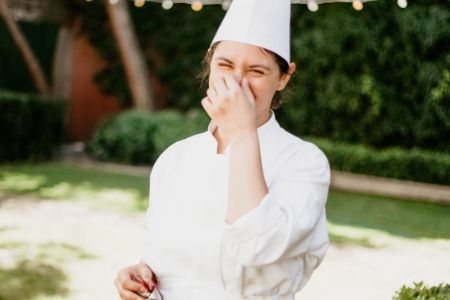
His advice that while speed (the time it takes to make something) is important it should never detract from accuracy, does appear applicable to many disciplines. Also pertinent is acknowledging that skill (in this case, culinary) is not the same as social media-savvy let alone what's required to run a restaurant with competency and the necessary business acumen.
Do you Really Want to be a Chef? 🫵
You need to learn at each step of a chef's journey up the professional ladder, recognising each one as being an opportunity to learn and improve your craft. Learn from those around you and try different locations to enhance your learning experience. Look for a mentor but always be a team player.
He reminds the reader that your goal needs to be ‘perfection’ and, again, this takes time. No easy shortcuts por vous. 👍 An interesting aside is making an omelette or salad as an interview question Cf. foo-bar-fizz?
Regard the future as evolution — not revolution.
Mentors 🫵
Getting your ‘foot in the door’ seems a universal theme. Use any connections (family, friends etc.) try and find somewhere the scene is not more important that the food. Leverage that into more connections with serious networking.
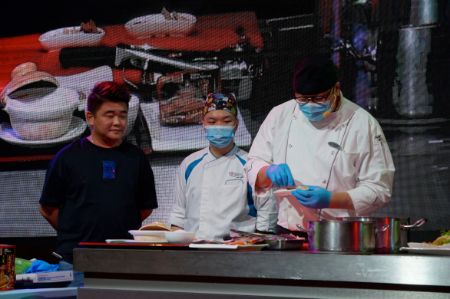
Learn as much as you can from your mentors. Although, annoyingly there did not appear to be any women 🧑🍳 working in the industry as chefs (until recently, according to this book). Boring! And do people favours as that can pay off (forward) like finding your own replacement when it's time to move on.
Michelin ⭐️⭐️⭐️ are for those exceptional places where the ingredients are complex yet focussed. To learn the required steps, watch those who're better/more experienced. This includes learning business and managerial skills.

The next advice is relevant for many disciplines also — break all your skills down into learnable reproducible components to be ready for the ‘crush of service’ i.e., the busy times. That's probably the best advice in here.
Heat 🫵
Learning heat takes time and heat expertise is the basis of good cuisine — the senses become greater than the recipe — only through experience. A supposed ‘sixth sense’ in this aspect may be 🐂💩 and quail stuffed with foie gra and figs sounds terrible (to *moi) but there's no doubt that a real understanding between ingredients and heat(ing) is required to be a good chef/cook.
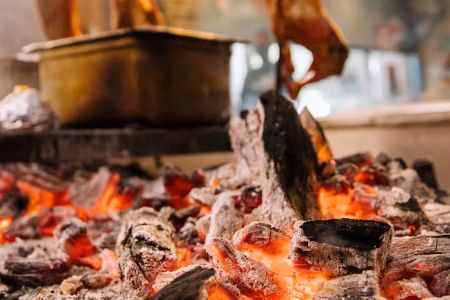
How well you control heat is how well you cook.
Boulud says the pinnacle of fluency in a kitchen is roasting and braising which are the soul of French cuisine. And, for him, different roasted meats evoke different regions of France and Europe.
Flavour 🫵
Boulud says that mastery of flavour is imperative to be a good chef with a great palate. Flavour is derived from taste and texture. Identifying specific tastes in a dish only comes from experience — not unlike being able to hear cellos and violas in an orchestra individually (texture also requires a mastery of heat). Aroma also is at play!

Grab steam to appreciate food's flavour … it's not a static thing!
As he points out, in many endeavours, less is more — a universal axiom but seasoning is not optional otherwise you'll get listless food!
He also shows some Gallic sensitivity when claiming Italians aren't criticised for using lots of butter and cream — only the French! 😢
Herbs and spices are accents to food which draw out the flavours.
Beer, between tastes, cleanses the palate for the next taste. 🍺
There are other tidbits — ‘parsley is wedded to garlic’ to balance its potentially overwhelming flavour. And he criticises younger chefs who don't get enough experience before mixing globalised ingredients. For example, curry is a blend of spices, each evoking a place of origin but often is used without correct context leading to confusion … ‘Where am I?’
Regardless, how you season food with butter, herbs and spices requires the best ingredients …
Sources & Seasoning 🫵
The foundational elements of cooking technique must be learnt before straying from any long-established rules. But, the opportunities are made boundless (and delicious) when expanding one's knowledge of ingredients and you must always seek out the best.
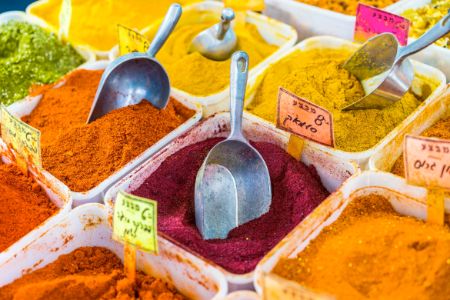
All of this, however, depends on the season and where sourced. Suppliers are the kitchen's connection to quality (but this is related to cost and affordability, also).
When something is ‘in season’ that means it's at its peak flavour and tf., it also affects what's cooked at that time of year and leads to ‘new’ dishes from what's available.
Wine & Pastry 🫵
Wine and desserts make up substantial parts of most restaurant bills. Economically it makes sense to invest in wines when younger/cheaper but appreciate over time.
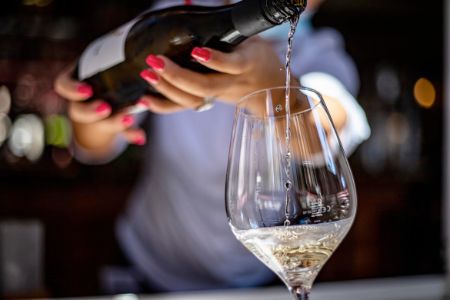
Good wine goes with good ingredients, and (apparently) these include truffles, grouse, wild salmon and porceli. Wine is an ingredient and a compliment for food. It balances acidity and enhances and concentrates flavour (unlike beer).
This is in contrast to non-European food's herbs, spices and fermented ingredients which are served with beer, cocktails and sake etc.
Palates crave sweetness at the end of most meals and are also (largely) profitable. So, learn to measure, make dough and plan! Baking is another necessary skill.
If cooking is about speed and creative technique, pastry is about precision.
The Whole Wide World 🫵
Chefs should experience worldly cuisines in situ (or at least in authentic local eateries). France invented the restaurant model and established haute cuisine and haute couture and Lyon was the epicentre and birthplace of the nouvelle cuisine tradition. But Boulud acknowledges the importance and variety of many other places and cultural fusions also.
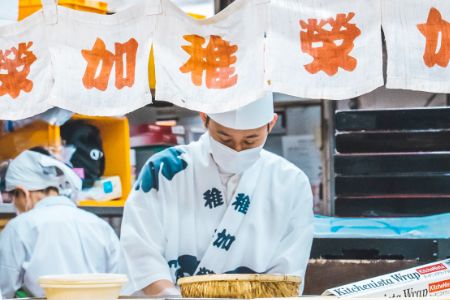
Regardless, parlay your ‘travels’ into real work and experience.
Desire, Drive & Focus 🫵
Don't rush, don't be in such a hurry to learn next thing you don't learn current thing. Become an expert in that before you move on because it's not good for you, long term, or the team you're with. And your mise en place (what's before you) is critical at every stage of your journey — your preparation. Skill requires ongoing relentless practice — watch the experts — speed is of the essence.
Praise is the absence of criticism.
- Get a feel for your clientele.
- Check bookings to plan your work.
- This advice is for young chef's — forty is too old …
- You need endurance & drive otherwise get a job as a pot-washer.
- Hire great & work with them because chemistry takes time to build.
- Keep diaries/journals of details, techniques etc., to share & learn with.
Attitude & Teamwork 🫵
To become a great chef a good work ethos is vital as is self-management. Consistency in preparation, technique, taste and presentations is also key … punters like to know what to expect and this standard let's you offer surprise — it's a trust thing.
And think of leftovers — what to do with them? How to use them? Think laterally — use with other recipes or creations. This is a business imperative. Those who can think in these ways become trusted and vital as chefs bugger off and do reality TV shows etc.
Some Elements of Success 🫵
Be aware of why your customers come … perfection (in dining) and a unique experience. It must make them happy 😊 (and consequently, you 💰 money).
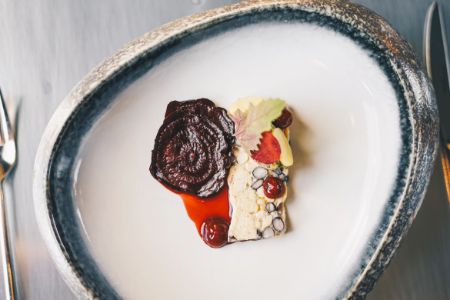
As a chef … move your patrons … touch them with honesty and personality in your food service, wine and decor … Walk the line between tradition and innovation. Daniel Boulud.
OK … Innovate constantly with new dishes and assimilate new tastes and techniques — ‘in tune’ with the market and season and collaborate!
The Front of House 🫵
Staff must treat punters as if it's their pleasure to serve … Being nice to a ‘pain in the tijuana’ customer is professional. Service is the the job!

But, the (apocryphal?) tale of sacking a full of ‘'tude’ maître d' on the spot for arguing with a customer, is 💩 because labour laws don't work that way and it makes Boulud sound like selfish old fool Joe Biden boasting about handing out school boy beatings. Unfettered capitalism belongs in America.
Oh, and don't push back on your social media detractors. Respond to patron expectations.

Anyone who's worked in Australia's so-called ‘hospitality industry’ is familiar with poor pay and hours while it can be fun for a while, the quality of life is poor and akin to slave labour on occasion. Even if you're good at it, most endeavours fail and only a few end up with a successful career — let alone a good life from it. Boulud acknowledges this to some extent …
A Special Kind of Life 🫵
Like a good recipe there must be good balance between work and wife and life.
A chef's working hours (like almost everyone on ‘hospitality’) are not friend or family friendly. Restaurants need to be a chef's all-consuming passion. That's fine but what about those who slog their guts out for 💩 pay just get the rent sorted? Or those don't have the connections, drive or luck, eeking out an existence on tips? Does all the sacrifice make you a better chef?
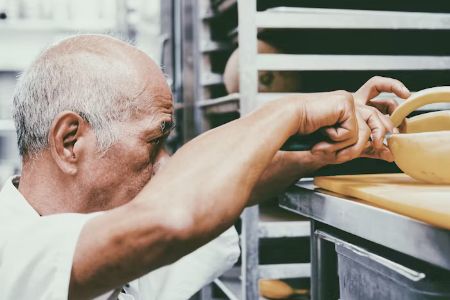
The Ten Commandments of a Chef (according to Daniel) 🫵
- Keep knives sharp — care for your tools & use them in context.
- Work with the best people — focus on the few — then specialise.
- Keep your station orderly — it's required for efficiency.
- Waste not for its moral & economic imperatives.
- Season with precision to elevate taste.
- Master heat & learn it intimately.
- Learn many cuisines quickly — build on them throughout your career.
- Know the classics — cover spectrums of technique, taste & ingredients.
- Accept criticism & push yourself — praise is hard earned.
- Keep a recipe journal — a small notebook as a 2nd brain.
The rest of the book features various kitchen themes written by some of Boulud's friends and colleagues, including …
- Discipline as a way of life (learnt from Boulud) & a tool for perfection.
- Doing things the right way because tradition & respect make great chefs.
- Technique requires patience then repeat until it's muscle memory.
- Mentorship is vital & always be learning & perfect the classics.
- Flavour is paramount, everything else is secondary. So, there! 🫵
- Ingredients are the essentials — the start — of everything.
- Recipes are really just guidelines, not secrets.
- Creativity combines dedication, practice, study, passion & desire.
- Passion is the foundation of success.
- Teamwork in your role is everything in the battle for brilliance.
- Loyalty to the right mentor is critical.
The final section is recipes gleaned from a lifetime of cooking across the globe but, to be frank, none of them sound anything other than tired old French restaurant ‘standards’. 🥱
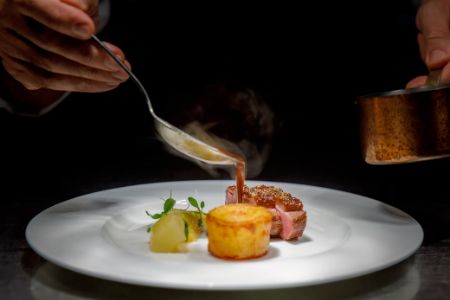
Can't remember who recommended this as a guide to working and being successful but it doesn't really provide anything new. It's easy to read (and maybe for someone who actually wants to work hard for little return it's OK) but, books like this would be better ‘served’ 😂 as long-form well-formatted blog posts — like this one about being a commis in a Chinese restaurant.
Plus, the live seafood stuff is just cruel and gross and the (male) genius trope tripe 😆 is really fucking tired.
- ↜ Previous: Peter Dutton Is A 🐕 Dingo
- ↝ Next: Assange Me 🙅♂️ Not